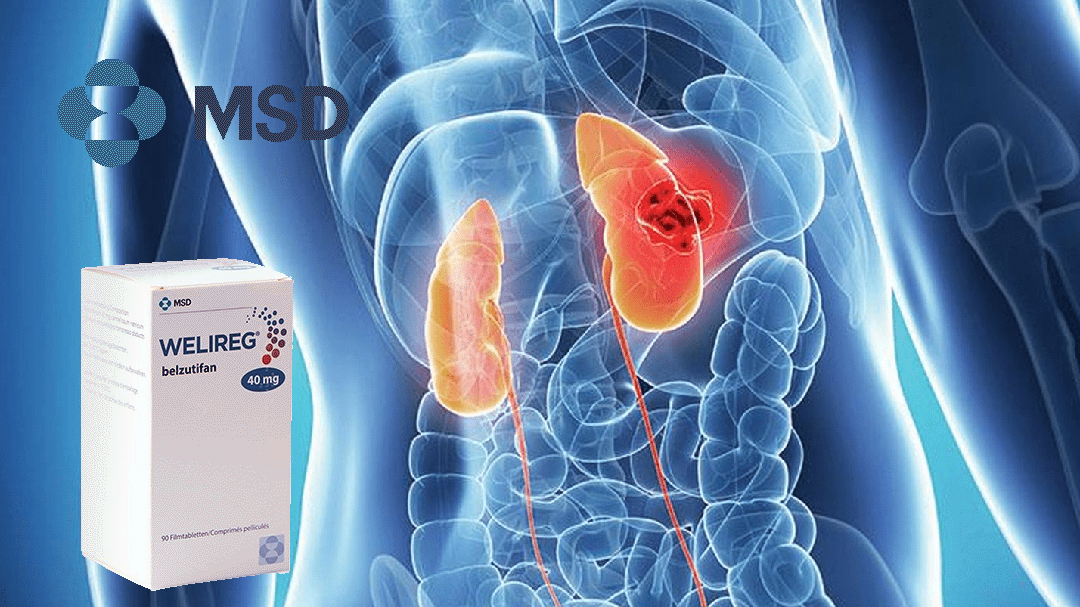Merck, Sharp & Dohme (MSD; NYSE: MRK) has announced that the European Medicines Agency’s Committee for Medicinal Products for Human Use (CHMP) has adopted a positive opinion for its Welireg (belzutifan), a hypoxia-inducible factor-2 alpha (HIF-2α) inhibitor. The CHMP recommends conditional approval for adult patients with von Hippel-Lindau (VHL) disease who require therapy for associated localized renal cell carcinoma (RCC), central nervous system (CNS) hemangioblastomas, or pancreatic neuroendocrine tumors (pNET), and for whom localized procedures are unsuitable. Additionally, it is for adult patients with advanced clear cell RCC that progressed following two or more lines of therapy, including a PD-1 or PD-L1 inhibitor and at least two vascular endothelial growth factor (VEGF) targeted therapies. The European Commission is expected to make a final decision in the first quarter of 2025.
Von Hippel-Lindau (VHL) Disease Background
Von Hippel-Lindau (VHL) syndrome is a rare genetic disorder that leads to the development of multiple benign and malignant tumors throughout the body. The condition is characterized by the development of retinal angiomas, hemangioblastomas of the cerebellum and spinal cord, and RCCs.
CHMP’s Positive Opinion Based on Clinical Trial Data
The CHMP’s endorsement for Welireg in VHL disease-associated tumors is supported by the objective response rate (ORR) and duration of response (DOR) results from the LITESPARK-004 trial. Welireg demonstrated an ORR of 49% in patients with VHL-associated RCC, with all responses being partial responses, and a median DOR that was not reached. If approved, Welireg would be the first and only systemic treatment for patients with VHL disease-associated tumors in the EU, following approvals in the US and China in August 2021 and November 2024, respectively.
Advanced Clear Cell RCC Therapies
The CHMP’s backing for Welireg in advanced clear cell RCC that progressed following two or more lines of therapy is based on the LITESPARK-005 trial results, where Welireg reduced the risk of disease progression or death by 25%, with a significantly higher ORR compared to everolimus (22% vs 4%). This indication was previously approved in the US in November of the previous year.-Fineline Info & Tech
